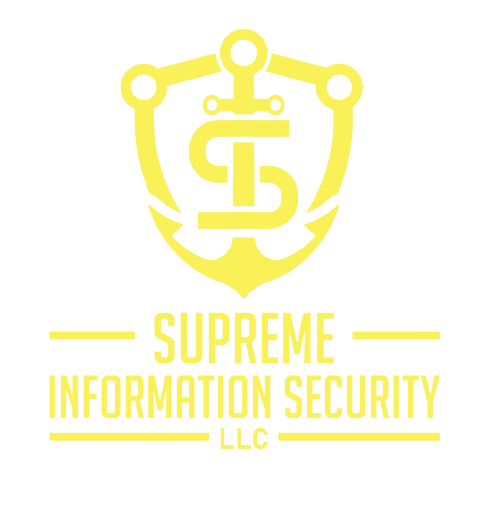The Certified Secure Computer User (CSCU) certification is a globally recognized credential that ensures individuals are equipped with necessary knowledge and tools to protect information assets. Developed by the EC-Council, the primary goal of CSCU is to establish an understanding of cybersecurity threats, online crimes, and safe browsing habits. The certification covers areas critical for maintaining the security of computer systems and networks, including data backup, phishing, web browsing security, and more. Industries use CSCU to validate employees’ understanding of basic security concepts, enabling them to act responsibly and secure their information systems from potential threats.
- Certifications
FIND YOUR COURSE
CERTIFICATIONS
- Insights
- Company
Certified Secure Computer User (CSCU)
The Certified Secure Computer User (CSCU) course's learning objectives are primarily aimed to provide knowledge and skills in protecting personal and professional information from potential security breaches. Participants should understand the fundamentals of operating systems, working with internet technology, network security threats, and procedures to mitigate such threats. The course is designed to introduce the concept of social engineering, identity theft, and data theft.
- Overview
- Course Outline
Course Prerequisites
• Basic understanding of computer and internet usage
• Familiarity with Windows/Linux/Mac operating system
• Familiarity with web browser functionality
• Prior knowledge of cybersecurity concepts is beneficial but not mandatory
• High school level education or equivalent.
• Familiarity with Windows/Linux/Mac operating system
• Familiarity with web browser functionality
• Prior knowledge of cybersecurity concepts is beneficial but not mandatory
• High school level education or equivalent.
Certified Secure Computer User (CSCU) Certification Training Overview
The Certified Secure Computer User (CSCU) certification is a globally recognized course that provides knowledge and skills to protect one’s information assets. It encompasses various key topics such as network security, identity theft, privacy protection, internet security and secure email communications. The training aims to create a secure digital environment by making individuals aware of the threats, attacks, and defenses in cyberspace. It is a valuable credential for all computer users, from students to professionals.
Why Should You Learn Certified Secure Computer User (CSCU)?
The CSCU course equips individuals with necessary skills to protect IT infrastructure and confidential information from cyber threats. It improves cybersecurity knowledge, risk momentousness, and protects against network attacks. It also provides better job opportunities, as employers prioritize certified professionals in information security. Learning CSCU adds value to your portfolio and credibility in IT space.
Target Audience for Certified Secure Computer User (CSCU) Certification Training
• Individuals with a basic understanding of computer and internet usage
• Students and professionals aiming to enhance their IT security skills
• Beginners interested in a career in cybersecurity
• Employees who handle sensitive digital data
• Organizations looking to educate their staff on cyber threats and prevention strategies.
Certified Secure Computer User (CSCU) Skills Measured
Upon completion of the Certified Secure Computer User (CSCU) certification training, individuals can gain skills in areas like internet security, troubleshooting network threats, identifying various types of malware and cyber threats, practicing effective network security measures, protecting data and privacy, handling cyber security incidents, and using secure web browsers. They will also receive an understanding of computer and network basics, email security, and secure online transactions, building on their capability in various IT security scenarios.
-
Module 1: Introduction to Data Security
- Data Backup and Disaster Recovery
- Understanding and Implementing Data Security
-
Module 2: Data Security Threats
- Overview of Data Security Threats
- Overview of Malware
- Understanding Internet and Social Networking Security Threats
- Understanding Email Security Threats
- Understanding Mobile Device Security Threats
- Understanding Wireless and Cloud Security Threats
-
Module 3: Operating Systems Security
- Guidelines to Secure Windows Operating Systems
- Guidelines to Secure Mac OS X
- Overview of Antivirus
-
Module 4: Internet and Social Networking Sites Security
- Understanding Web Browser Concepts
- Understanding IM Security
- Understanding Child Online Safety
- Understanding Social Networking Concepts
- Understanding Facebook and Twitter Security Settings
-
Module 5: Email Communication and Mobile Device Security
- Understanding Email Security Concepts
- Understanding Various Email Security Procedures
- Understanding Mobile Device Security Concepts
- Understanding Various Mobile Security Procedures
- Understanding How to Secure iPhone, iPad, Android, and Windows Devices
- Overview of Mobile Security Tools
-
Module 6: Email Communication and Mobile Device Security
- Understanding Cloud Concepts
- Safeguarding Against Cloud Security Threats
- Understanding Cloud Privacy Issues
- Understanding Various Networking Concepts
- Understanding Setting Up a Wireless Network in Windows and Mac
- Understanding Wireless Network Security Countermeasures
-
Module 7: Data Backup and Disaster Recovery
- Overview of Data Backup Concepts
- Understanding Windows/MAC OS X Backup and Restore Procedures
- Understanding Secure Data Destruction
Related Courses Available
Certified Ethical Hacker v12
Certified Ethical Hacker v12 (CEHv12) course include understanding hacking methodologies and innovative attack vectors, recognizing vulnerabilities in IoT and OT platforms for ethical hacking measures, and understanding modern malware, cloud-related attacks, and AI-based security strategies. It also aims to teach learners how to perform vulnerability analysis to enhance system security, explore the latest Trojan, virus, ransomware, and backdoor-related security threats, and to use globally acceptable standards for network scanning.
Certified Penetration Testing Professional
Certified Penetration Testing Professional (CPENT) course are to enable students to grasp advanced concepts related to penetration testing and ethical hacking. The course aims to give learners a deep understanding of the various approaches and methodologies associated with penetration testing. Students should be able to comprehend multi-level pivoting, OS vulnerabilities, SSH tunneling, and advanced report writing.
About Supreme Information
Supreme Training, a leading provider of comprehensive and cutting-edge IT training solutions. We are dedicated to empowering individuals and organizations with the knowledge and skills needed to thrive in today’s dynamic technology landscape.
SOLUTIONS
-
Value of Training
-
Group Training
-
Training Tools & Resources
-
Industries
-
Government
© 2023 Supreme Information Security LLC
proudly support with ♥ by SP SYSTEMS & NET SOLUTIONS

